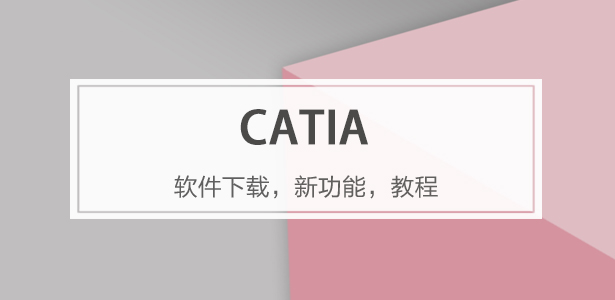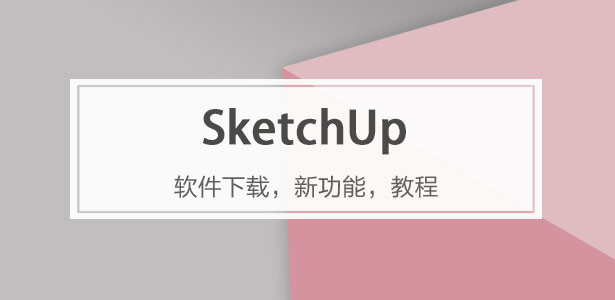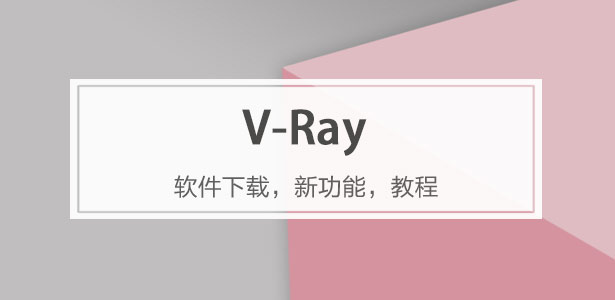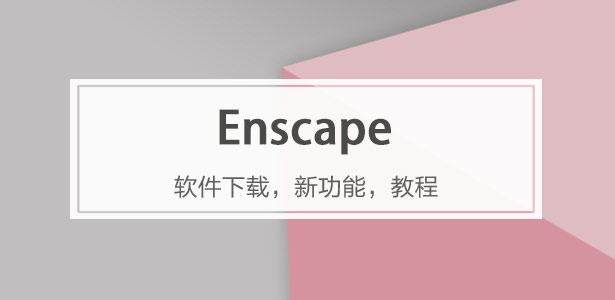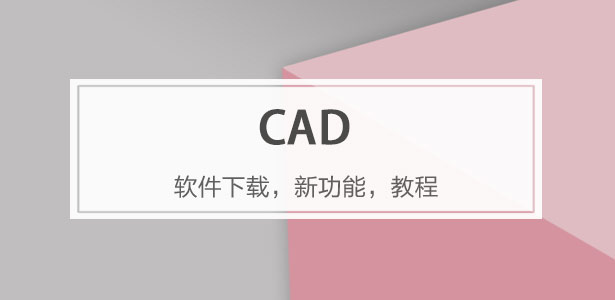* 主體類(lèi)型
* 企業(yè)名稱(chēng)
* 信用代碼
* 所在行業(yè)
* 企業(yè)規(guī)模
* 所在職位
* 姓名
* 所在行業(yè)
* 學(xué)歷
* 工作性質(zhì)
請(qǐng)先選擇行業(yè)
您還可以選擇以下福利:
行業(yè)福利,領(lǐng)完即止!

下載app免費(fèi)領(lǐng)取會(huì)員



Agora Maximus, Tactical Urbanism Project / LAAB Collective + Signature Design Communication. Image © Raphaël Thibodeau
作為界面的城市:易讀城市如何利用用戶(hù)體驗(yàn)設(shè)計(jì)重新思考導(dǎo)視系統(tǒng)
The City as Interface: How Legible Cities Rethink Wayfinding Using UX Design
由專(zhuān)筑網(wǎng)Zia,小R編譯
用戶(hù)體驗(yàn)(UX)設(shè)計(jì)可以使數(shù)字界面更加清晰,易于瀏覽。該學(xué)科通過(guò)深入了解用戶(hù)需求,并繪制圖形來(lái)實(shí)現(xiàn)這一目標(biāo)。城市代表著多個(gè)用戶(hù)體驗(yàn)的物理界面——居民、游客、不同年齡和性別的人,每個(gè)人都在以獨(dú)特的方式體驗(yàn)城市。在數(shù)字界面為無(wú)障礙體驗(yàn)而設(shè)計(jì)的時(shí)代,為什么許多城市仍然在導(dǎo)視系統(tǒng)方面遇到困難?
美國(guó)城市規(guī)劃師和作家凱文·林奇(Kevin Lynch)首次創(chuàng)造了“城市易讀性”(urban legibility)一詞,將人們?nèi)绾屋p松理解和瀏覽城市布局的研究正式化。與應(yīng)用程序和網(wǎng)站一樣,城市環(huán)境需要直觀的設(shè)計(jì),通過(guò)清晰的路徑、獨(dú)特的地標(biāo)、明確的區(qū)域以及易于識(shí)別的節(jié)點(diǎn)或聚集地來(lái)實(shí)現(xiàn)。這種清晰度能帶來(lái)安全感,鼓勵(lì)人們探索,并提高居民和游客的整體生活質(zhì)量。
Design disciplines, like user experience (UX) design, have evolved to excel at devising experiences that make digital interfaces navigable. They accomplish this through a deep understanding of user needs and by mapping user journeys with meticulous attention to detail. The city represents a physical interface experienced by multiple users - residents, tourists, people of various ages and genders each experiencing it uniquely. In a time where digital interfaces are crafted for frictionless user experiences, why do many cities remain challenging to navigate?
Kevin Lynch, American urban planner and author, first coined the term "urban legibility" to formalize the study of how easily people can comprehend and navigate a city's layout. Much like apps and websites, urban environments require intuitive designs, achieved through clear pathways, distinctive landmarks, well-defined districts, and easily identifiable nodes or gathering places. This clarity brings a sense of security, encourages exploration, and enhances the overall quality of life for residents and visitors.

Rachel de Queiroz Park / Architectus S/S. Image © Joana França
布里斯托和南安普頓“易讀城市”等結(jié)構(gòu)化導(dǎo)覽計(jì)劃展示了城市對(duì)于清晰性的積極提高。布里斯托“易讀城市”的交通、信息和標(biāo)識(shí)項(xiàng)目綜合計(jì)劃使這座城市更受歡迎。該項(xiàng)目考慮了用戶(hù)在整個(gè)旅程中的需求,包括方向指示牌、游客歡迎板、城市和地區(qū)地圖、提供當(dāng)?shù)匦畔⒌慕庹f(shuō)、綜合交通信息網(wǎng)絡(luò)、藝術(shù)裝置、電話(huà)亭、信息亭、交通樞紐市場(chǎng)和社區(qū)出入口。
這些項(xiàng)目的重點(diǎn)是實(shí)施統(tǒng)一的標(biāo)識(shí)、清晰的地圖系統(tǒng)和用戶(hù)友好型信息,以引導(dǎo)人們有效地瀏覽城市景觀。城市空間設(shè)計(jì)受用戶(hù)體驗(yàn)設(shè)計(jì)原則的啟發(fā),提供了幾種打造易讀城市的方法:
Structured wayfinding initiatives such as Bristol Legible City and Southampton Legible City demonstrate how cities actively enhance their legibility. Bristol Legible City's integrated program of transport, information, and identity projects makes the city more welcoming and "readable." The program considers user needs throughout their entire journey, encompassing directional signs, visitor welcome panels, city and area maps, interpretation points providing local information, an integrated transport information network, an arts program, telephone kiosks, information booths, markets at transport interchanges, and neighborhood gateways.
These projects focus on implementing consistent signage, clear mapping systems, and user-friendly information to guide people effectively through the urban landscape. Strategic spatial design, inspired by UX design principles, offers several approaches to creating a legible city:
層次結(jié)構(gòu)與信息架構(gòu)
Hierarchy & Information Architecture

Wayfinding in London. Image Courtesy of APPLIED
正如網(wǎng)站采用清晰的標(biāo)題、菜單和導(dǎo)航流程一樣,一個(gè)清晰易讀的城市也會(huì)在其導(dǎo)向系統(tǒng)中采用信息分層。這類(lèi)導(dǎo)航工具優(yōu)先考慮街道名稱(chēng)和主要地標(biāo)等基本信息,以合理易懂的形式呈現(xiàn)。街道標(biāo)志、地圖和數(shù)字交互設(shè)施提供了多層次的信息,使用戶(hù)能夠快速找到自己所在的位置和所需的信息。
Just as websites employ clear headings, menus, and navigation flows, a legible city employs information hierarchy in its wayfinding systems. Such navigation tools prioritize essential information such as street names and key landmarks, presenting it in a logical and digestible format. Street signs, maps, and digital kiosks offer layers of information, enabling users to quickly locate where they are and what they need.

New York Subway. Image Courtesy of CityID
南安普頓“易讀城市”指出,人們需要的信息各不相同,這取決于他們的環(huán)境和用戶(hù)出行計(jì)劃。該市開(kāi)發(fā)的尋路系統(tǒng)將這些需求分為三個(gè)層次: 直達(dá)(提供從A點(diǎn)到B點(diǎn)的最有效路線(xiàn))、指引(幫助人們最大限度地利用在城市中的時(shí)間)和展示(方便人們探索和發(fā)現(xiàn)城市中隱藏的風(fēng)景)。
品牌識(shí)別設(shè)計(jì)
視覺(jué)或品牌識(shí)別對(duì)于數(shù)字和物理環(huán)境都至關(guān)重要。在城市地圖、標(biāo)牌和公共交通中統(tǒng)一使用字體、顏色和符號(hào),可以加強(qiáng)品牌效應(yīng),強(qiáng)化城市形象,提高導(dǎo)航的直觀性。
The Southampton Legible City initiative recognizes that people require different information depending on their circumstances and user journeys. The city's wayfinding system was developed to categorize these needs into three levels: Direct (providing the most efficient route from point A to point B), Guide (helping people maximize their time in the city), and Show (facilitating exploration and discovery of the city's hidden treasures).
Branding Identity Design
A visual or brand identity proves essential for both digital and physical environments. Consistent application of fonts, colors, and symbols across city maps, signage, and public transport creates a recognizable brand that reinforces the city's identity and enhances intuitive navigation.

Bristol Legible City 2.0. Image Courtesy of CityID
布里斯托爾“易讀城市”致力于打造一座“可展示的城市”,優(yōu)先考慮用戶(hù)需求。利用公共藝術(shù)提升城市特色,鼓勵(lì)探索。藝術(shù)裝置散布在城市的各個(gè)角落,使城市更易于理解、記憶和吸引人。
Bristol Legible City strives toward creating a "showcase city" prioritizing user needs. The project leverages public art to enhance the city's character and encourage exploration. Art installations are scattered throughout the urban landscape to make the city more comprehensible, memorabe, and engaging.
用戶(hù)反饋機(jī)制
User Feedback Loops

User testing and participatory design workshop. Image Courtesy of CityID

Bristol Legible City 2.0. Image Courtesy of CityID
在數(shù)字領(lǐng)域,用戶(hù)反饋推動(dòng)著設(shè)計(jì)的迭代改進(jìn)。在城市環(huán)境中,這可以轉(zhuǎn)化為實(shí)時(shí)數(shù)字更新,如交通信息、公共交通時(shí)刻表、提供個(gè)性化導(dǎo)航的互動(dòng)式信息臺(tái),以及允許用戶(hù)報(bào)告問(wèn)題或提出改進(jìn)建議的移動(dòng)友好型導(dǎo)航工具。
從靜態(tài)標(biāo)識(shí)到數(shù)字方案的演變進(jìn)一步改善了城市導(dǎo)航。現(xiàn)在,智能地圖、增強(qiáng)現(xiàn)實(shí)(AR)應(yīng)用和人工智能導(dǎo)航工具可為用戶(hù)提供個(gè)性化導(dǎo)航。城市正在將實(shí)時(shí)交通數(shù)據(jù)(包括公交車(chē)到達(dá)時(shí)間、交通狀況和行人分析)納入導(dǎo)視系統(tǒng),這樣就能對(duì)標(biāo)識(shí)和導(dǎo)航建議進(jìn)行動(dòng)態(tài)調(diào)整,同時(shí)確保用戶(hù)獲得最新信息。
通過(guò)廣泛的研究和測(cè)試,南安普頓以用戶(hù)為中心的產(chǎn)品和服務(wù)協(xié)調(diào)改善了城市的街景,并在整個(gè)旅程中提供相關(guān)信息。在開(kāi)發(fā)過(guò)程中,雷丁大學(xué)字體設(shè)計(jì)與圖形交流系和英國(guó)皇家盲人學(xué)院對(duì)字體和地圖進(jìn)行了測(cè)試和驗(yàn)證。
In the digital realm, user feedback drives iterative design improvements. In the urban context, this translates to real-time digital updates like traffic information, public transport schedules, interactive kiosks offering personalized directions, and mobile-friendly navigation tools allowing users to report issues or suggest enhancements.
The evolution from static signage to digital wayfinding solutions further improves urban navigation. Smart maps, augmented reality (AR) applications, and AI-powered navigation tools now provide users with personalized guidance. Cities are incorporating real-time transport data—including bus arrival times, traffic conditions, and pedestrian analytics—into their wayfinding systems. This enables dynamic adjustments to signage and navigation recommendations while ensuring users access the most current information.
Drawing from extensive research and testing, user-centered products and services in Southampton deliver coordinated improvements to the city's streetscape and provide relevant information throughout the journey. During development, typefaces and maps underwent testing and verification by the Department of Typography and Graphic Communication at the University of Reading and the Royal National Institute for the Blind.

Paddington Portable Event Signage. Image Courtesy of Maynard
直觀的導(dǎo)向標(biāo)識(shí)對(duì)行人體驗(yàn)和城市生活有多重益處。清晰、一致的標(biāo)識(shí)和地圖可改善游客、新居民和殘疾人的無(wú)障礙環(huán)境,從而使他們更有信心地出行。有標(biāo)識(shí)的城市鼓勵(lì)步行探索城市,增加商店、餐館和當(dāng)?shù)仄髽I(yè)的人流量,從而支持當(dāng)?shù)亟?jīng)濟(jì)并激活公共空間。
步行友好城市還通過(guò)宣傳明確的步行時(shí)間、安全路線(xiàn)以及與公共交通的連接,鼓勵(lì)人們選擇步行和騎自行車(chē)等其他積極的交通方式,從而提升公眾健康。南安普頓“步行友好城市”項(xiàng)目通過(guò)提供消耗的卡路里和減少的二氧化碳排放量等信息,強(qiáng)調(diào)了步行對(duì)健康的益處,進(jìn)一步激勵(lì)人們采用更積極的生活方式。
城市形象和建筑環(huán)境質(zhì)量對(duì)當(dāng)?shù)亟?jīng)濟(jì)至關(guān)重要。因此,城市應(yīng)該作為一個(gè)互動(dòng)系統(tǒng)來(lái)運(yùn)作,讓人們感覺(jué)到城市導(dǎo)覽是直觀和易讀的。通過(guò)采用用戶(hù)至上的城市導(dǎo)航方法,城市規(guī)劃者、設(shè)計(jì)者和決策者可以打造更方便、更適合步行、更令人愉悅的城市環(huán)境。
Intuitive wayfinding has multiple benefits towards the pedestrian experience and city life. Clear, consistent signage and mapping improve accessibility for tourists, new residents, and inpiduals with disabilities, thereby empowering them to navigate with greater confidence. Legible cities encourage urban exploration on foot, increasing foot traffic in shops, restaurants, and local businesses to support the local economy and activate the public realm.
Legible cities also promote public health by encouraging other active transportation options like walking and cycling by communicating clear walk times, safe routes, and connections to public transport. The Southampton Legible City project highlights the health and fitness benefits of walking by providing information on calories burned and CO2 emissions saved, further motivating people to embrace more active lifestyles.
A city's image and built environment quality are fundamental to its local economy. Therefore, cities ought to function as interactive systems where wayfinding feels as intuitive and approachable. By adopting a user-first approach to city navigation, urban planners, designers, and policymakers can create more accessible, walkable, and enjoyable urban environments.

A man examines a prototype of a Legible London wayfinding sign in a transit center. . Image Courtesy of APPLIED

Southampton Legible City. Image Courtesy of Maynard
本文版權(quán)歸腿腿教學(xué)網(wǎng)及原創(chuàng)作者所有,未經(jīng)授權(quán),謝絕轉(zhuǎn)載。

上一篇:[db:標(biāo)題]
下一篇:行業(yè)新聞 | 海口下半年預(yù)計(jì)有3個(gè)安居房項(xiàng)目上市
猜你喜歡

BIM建筑|上海院新作:臨港青少年活動(dòng)中心(臨港少年宮)

BIM建筑|大灣區(qū)納米科創(chuàng)院廣納院展示中心 / HOT DESIGN熾造設(shè)計(jì)工作室

BIM建筑|灣區(qū)新地標(biāo),橫琴文化藝術(shù)中心|徐昀超建筑工作室(深總院)新作

BIM建筑|悼念 | 日本重要建筑師,紐約MoMA設(shè)計(jì)者谷口吉生逝世:精致細(xì)節(jié)的創(chuàng)造者

BIM建筑|100個(gè)令人難忘的建筑場(chǎng)景

建筑賞析|香港億萬(wàn)豪宅愛(ài)都大廈:新鮮的奢華!
最新課程

BIM土建實(shí)戰(zhàn)訓(xùn)練 - A部分標(biāo)準(zhǔn)化建模指導(dǎo)
Revit
4958人已學(xué)

BIM土建實(shí)戰(zhàn)訓(xùn)練 - B部分 場(chǎng)地與基礎(chǔ)模型創(chuàng)建
Revit
6975人已學(xué)

BIM土建實(shí)戰(zhàn)訓(xùn)練 - C部分 地下室土建模型創(chuàng)建
Revit
10818人已學(xué)

BIM土建實(shí)戰(zhàn)訓(xùn)練 - D部分 協(xié)同工作
Revit
2175人已學(xué)

BIM土建實(shí)戰(zhàn)訓(xùn)練 - E部分 裙房及塔樓模型創(chuàng)建
Revit
4021人已學(xué)

BIM土建實(shí)戰(zhàn)訓(xùn)練 - F部分 土建深化模型
Revit
7741人已學(xué)
推薦專(zhuān)題
- BIM建筑|王方戟:東工大學(xué)派及其關(guān)聯(lián)(第一講)|有方講座99場(chǎng)介紹
- BIM建筑|日建設(shè)計(jì) 陸鐘驍:通往“共有性”的探索|有方講座100場(chǎng)介紹
- BIM建筑|gmp改造類(lèi)新作:上海之禾卡紛花園
- 建筑賞析|廣州八號(hào)倉(cāng)流溪河奧萊小鎮(zhèn)改造:被時(shí)代拋棄的歐陸風(fēng)如何重?zé)ㄉ鷻C(jī)
- BIM建筑|gmp改造類(lèi)方案:德國(guó)哥倫布郵輪碼頭
- BIM建筑|《人生切割術(shù)》里的建筑學(xué)
- BIM建筑|gmp改造類(lèi)新作:馬格德堡雙曲面殼體屋頂建筑,尊于原作的創(chuàng)新
- 建筑賞析|城市的“導(dǎo)航皮膚”——如何給街道裝上“AR游戲地圖”?
- 建筑賞析|花磚藝術(shù):做一場(chǎng)南洋舊夢(mèng)
- 建筑賞析|一棟真正“為自己而建”的房子,藏著藝術(shù)家的內(nèi)心世界



















